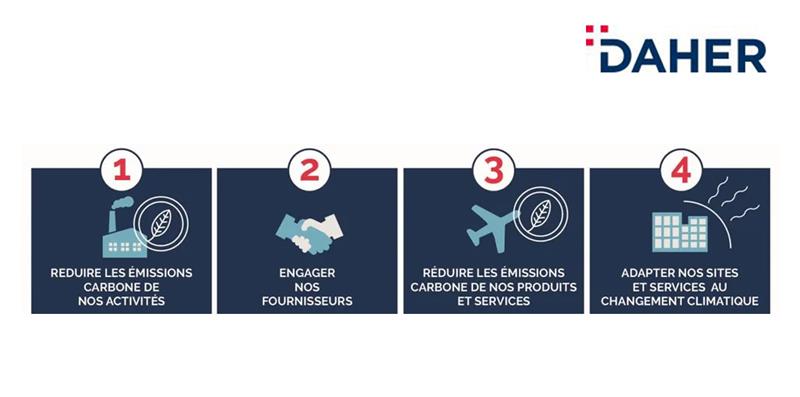Daher Commits to a Low-Carbon Future with Ambitious Climate Policy
BY Composights
Published: 10 Sep 2025
Daher, a family-owned
industrial group active across the aeronautics value chain, has unveiled an
ambitious and structured climate policy aimed at aligning its operations
with the Paris Agreement. The strategy reinforces Daher s role as a
responsible leader in aviation s sustainability transition, targeting a 50%
reduction in operational carbon emissions by 2032.
The new plan is built around four
strategic pillars:
- Reducing carbon emissions from activities
Daher will cut operational emissions by 23% by 2027 and 50% by 2032
through energy efficiency, electrification, process optimization, and
wider use of sustainable fuels.
- Engaging suppliers in the transition The
company will assess the carbon maturity of its top 50 suppliers by 2027,
and 100 by 2032, co-developing reduction trajectories aligned with the 1.5 C
Paris target.
- Reducing emissions from products and services
Daher plans to develop a lower-carbon aircraft by 2027, increase
the share of sustainable aviation fuel (SAF) in its flight
operations to 10% by 2027 and 20% by 2032, and dedicate over 50% of its
R&D budget to lightweight composites.
- Adapting activities to climate risks By
2027, Daher will map physical risks across its sites and value chain,
followed by resilience and adaptation plans by 2032 to ensure business
continuity.

Daher s climate policy is a
concrete response to the climate emergency, said Julie de Cevins,
Director of Sustainable Development. It reflects our ambition to act
methodically and responsibly, with every employee contributing to the Group s
sustainable transformation.
By integrating sustainability
across operations, supply chains, products, and infrastructure, Daher aims to
accelerate the aeronautics sector s energy transition while ensuring long-term
resilience and competitiveness.









